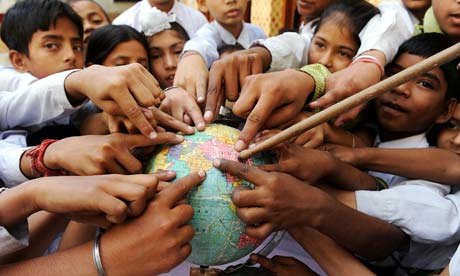

Educationfor all

The early days in India allowed education only to the people of upper class societies. It was considered to be a primitive form of education. But now, education has become modern everywhere. In spite of taking several initiatives for education, educating the rural India still remains a great challenge. As seen above, quality and access still remains a concern in rural India. There is still a lack of competent and committed teachers, lack of textbook, teaching-learning materials. Teachers refuse to teach in rural tribal areas and those who agree to, are under qualified. The physical infrastructure of rural schools is far behind the satisfactory level. 82 % of the schools are in need of renovation. The mid day meal scheme meant to reduce drop-out rates in schools also did not turn out to be very successful due to misappropriation of funds, mismanagement, lack of seriousness among the implementing authorities, lack of awareness amongst the parents of poor children, etc. It was found that enrollment in schools is directly related to the income group of the households. A low income household has lesser enrollments than high income households.
A lot of effort is being made in educating the Rural India. But a lot more still needs to be achieved to ensure high literacy rate in rural India and to abolish gender disparity which still persists in a large part of remote areas. A thorough study of the impact of the government schemes is very important. Free uniform, free bicycles, midday meal schemes, provision of food and lodging will help retain the enrollment in the schools, especially of the girl child. Parents should be sensitized to educate not only their male child, but also their female child. Introduction of vocational and bridge courses will help retain girls in the school. There is a need to abolish the practice of son preference. Building only infrastructure will not help but there is also a need to address the root cause of discrimination in the tribal area. A speedy remedial action can be taken and eventually every child can be included in the orbit of his fundamental right to learn and grow.
